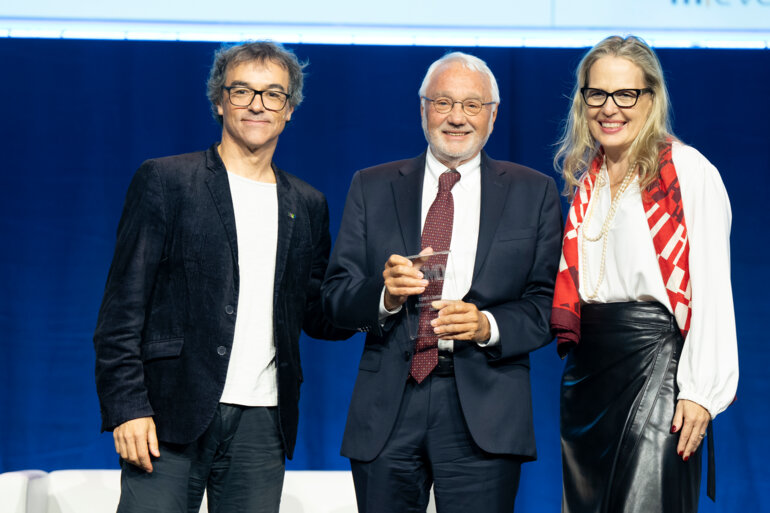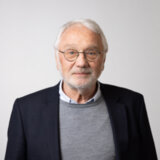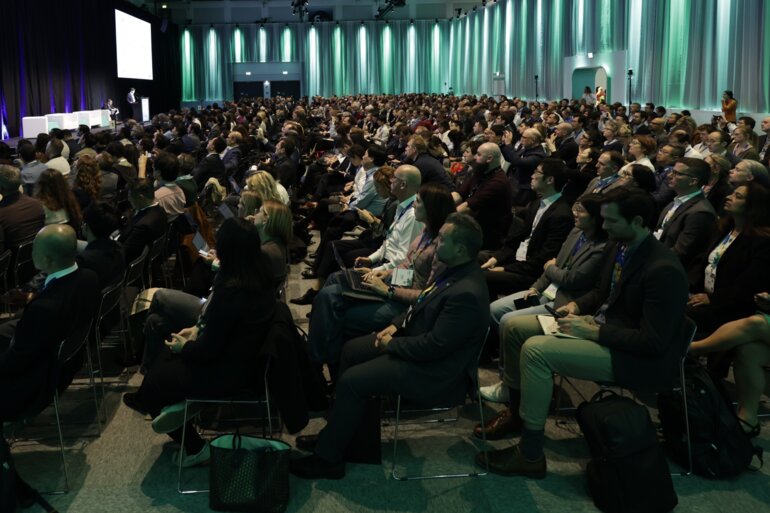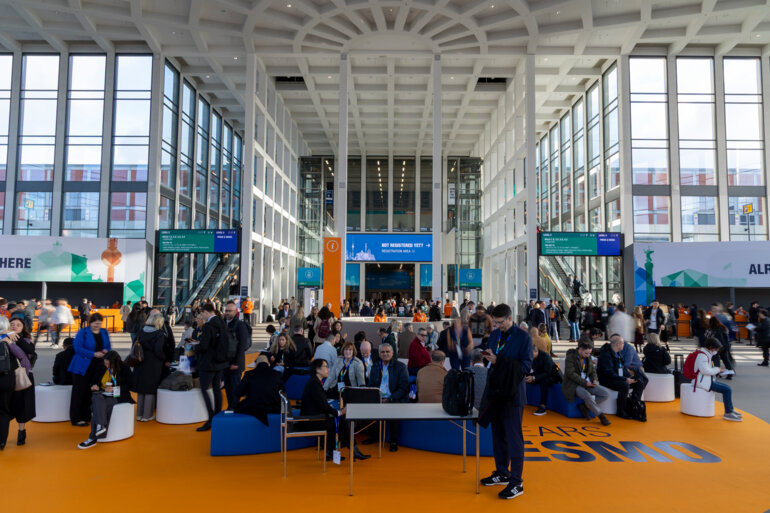The 2025 ESMO Lifetime Achievement Awardee, Prof. Rolf Stahel, reflects on the role of the oncology community to drive progress in cancer care
Throughout a distinguished career in thoracic oncology and cancer research, Rolf Stahel has held many key academic and leadership roles. Currently, he is President of the ETOP IBCSG Partners Foundation – created by the merger of the European Thoracic Oncology Platform and the International Breast Cancer Study Group – a not-for-profit foundation that promotes and executes international clinical and translational research in the field of thoracic oncology and breast cancer. ESMO President from 2014 to 2015, he is also Vice-President of the International Cancer Foundation (ICF) and has served in multiple capacities within ESMO, including Chair of the Guidelines and Education committees. The 2025 ESMO Lifetime Achievement Award recognises Stahel’s visionary leadership and enduring contributions to oncology, which have shaped clinical research, education and international collaboration in the field.
Which important lessons have you learned during your career that you could share with the next generation of medical oncologists?
Even if you believe you are smart, hard-working, determined and believe in yourself, do not think you can do it all alone. Mentorship and sponsorship are extremely important. I would also recommend surrounding yourself with a core group of experts who you can turn to for support and advice when needed, and nurture relationships with people you respect. There are many opportunities to contribute; don’t be shy, take these chances and commit.
What have been the most significant cornerstones during your career?
In my institution, I made an effort to establish a multidisciplinary approach to the treatment of thoracic malignancies, collaborating closely with the thoracic surgeon. Later, I had the privilege of promoting this concept as Chair of the Comprehensive Cancer Center Zürich.
My contributions to the profession include founding the Swiss Society of Medical Oncology and introducing the ESMO Guidelines. Within ESMO, I focused on making the society more inclusive for all professionals involved in cancer care. I ensured that the ESMO Congress would be held annually and supported its global outreach through the introduction of the ESMO Congress Asia and the ESMO summits in Africa and Latin America.
I am grateful for the support of our international community of physicians and healthcare professionals involved in the academic clinical research of the ETOP IBCSG Partners Foundation. Together, we share the common goal of promoting and conducting international clinical research in thoracic malignancies and breast cancer. By working together with a common goal, we can make important contributions to patient care.
How has the treatment of lung cancers changed since you began working in this field?
Early in my career, my research work was laboratory-based as that was where I felt advances could be made. I was interested in immunotoxins and anti-apoptotic treatment modalities that I studied in preclinical models of small cell lung cancer and in the biology of mesothelioma. At that time, systemic treatment of patients was mostly restricted to platinum-based chemotherapy. When I was undertaking a fellowship at the Dana Farber Cancer Institute in Boston, USA, platinum-based combination treatments for advanced non-small cell lung cancer (NSCLC) were considered standard of care. However, this was not the case in Europe where the treatment and its associated toxicity were being heavily debated, even 10 years later. We had limited knowledge of the underlying biology of the disease, thus focusing on the laboratory and trying to gain a better understanding seemed the best way to proceed. I think my early experience in the USA stayed with me during my career as it fostered a need to push boundaries rather than be
The treatment of lung cancer has changed dramatically since the start of my career, with targeted treatment as well as immune checkpoint inhibition becoming the new clinical reality and opening the field to numerous clinical questions. ETOP was founded in 2009 as an academic collaborative research organisation, aiming to promote and contribute to clinical research in thoracic malignancies. I have the honour of leading this organisation, together with friends and colleagues from Europe and Asia. Together, we established a community driving academic research, working together with respect, friendship and a shared vision that brings advances to patients.
ETOP sponsors and manages a range of clinical trials in thoracic malignancies. Earlier this year we reported results of the phase II AMAZE-lung study demonstrating the activity of a chemotherapy-free triple combination of amivantamab (an EGFR-MET bispecific antibody), lazertinib and bevacizumab in patients with EGFR-mutant advanced NSCLC with progression on a previous third-generation EGFR-TKI (J Thorac Oncol. 2025;20(Suppl 1):S13–S14). At the ESMO Congress 2025, a trial-in-progress poster will be presented on the large, randomised phase III trial, ADOPT-lung, which evaluates the role of the adjuvant part of perioperative immunotherapy for stage II/III NSCLC.
How do you see the treatment landscape for lung cancer evolving in the future?
There is extremely rapid evolution in the field and treatment is becoming increasingly complex as huge technological advances facilitate molecular- and genomic profiling-based precision medicine. A growing number of oncogenic drivers have been identified, offering the possibility of therapeutic interventions and leading to the development of a broad range of targeted treatment options. In addition, the role of immune checkpoint inhibitors has been firmly established. While this is clearly advantageous for patients, it has also led to greater disparity in access to treatment. I am proud to be a member of the board of the ICF, which is dedicated to addressing global cancer disparities and improving lives. By empowering local communities and healthcare workers through funding, training and patient advocacy, the ICF supports cancer prevention and care in low- and middle-income countries.
Programme details
Stahel R. ESMO Lifetime Achievement Award lecture: Together with a common goal. ESMO Congress 2025, Opening session








